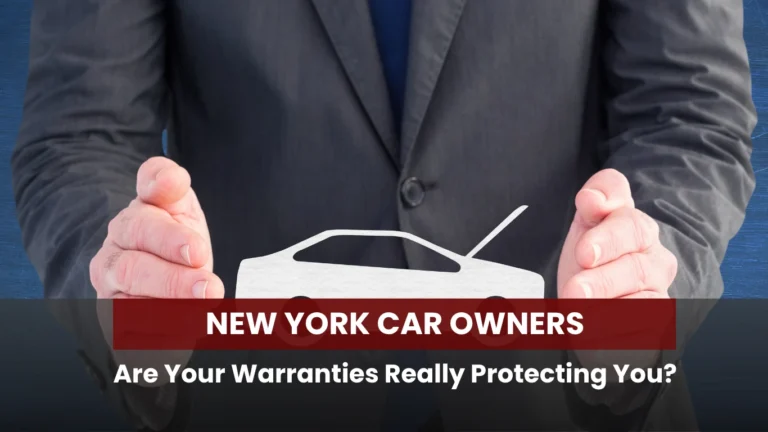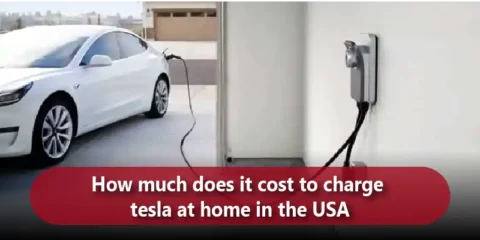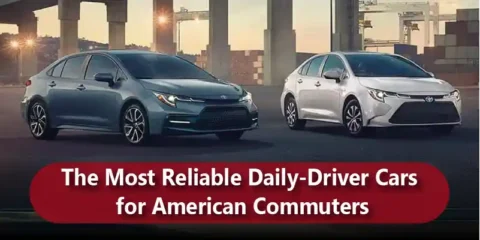If you’re one of the many car owners in New York, chances are you rely on your car warranty for peace of mind. After all, cars are expensive to buy and even more costly to repair. But have you ever stopped to ask is your New York car warranty truly protects you? Or are you paying for coverage that may not hold up when you need it most?
In a city where auto repair costs can climb faster than rush-hour traffic, understanding the realities of vehicle warranty protection is essential. From auto warranty fine print to the rise in car warranty scams in New York, the truth may surprise you.
What a Car Warranty Really Covers in New York
A car warranty is essentially a promise, a legal commitment by a manufacturer or dealer to repair or replace certain components if they fail within a specific time frame. But in New York, what you’re promised and what you actually get often differ.
Manufacturer or Factory Warranty
When you buy a new vehicle, it usually comes with a new car warranty from the manufacturer. This factory coverage typically lasts three years or 36,000 miles (sometimes longer) and protects you from defects in materials or workmanship. However, even these auto warranty coverage NY plans exclude certain repairs like routine maintenance, brake pads, and wear items.
New cars must include a valid manufacturer’s warranty, and the law ensures that if a defect can’t be fixed after a reasonable number of repair attempts, the consumer may be eligible for a replacement or refund.
Dealer and Used Car Warranties
If you’re purchasing a used car from a licensed dealer, New York law mandates a minimum warranty period under the state’s Used Car Lemon Law. Depending on the car’s mileage, you can receive:
- 90 days/4,000 miles of warranty for vehicles under 36,000 miles
- 60 days/3,000 miles for vehicles between 36,000–80,000 miles
- 30 days/1,000 miles for vehicles with 80,000–100,000 miles
This regulation ensures car owners in New York have some baseline vehicle warranty protection, even for pre-owned cars.
Extended Car Warranties: Extra Expense?
Once your factory warranty expires, dealerships or third-party providers often push extended car warranties. These plans, also known as vehicle service contracts, promise continued auto warranty coverage in NY beyond the manufacturer’s limits.
But here’s the catch: not all extended car warranties are created equal. Some provide genuine value, covering high-cost repairs like transmissions or hybrid batteries, while others offer limited protection with long lists of exclusions hidden in the auto warranty fine print.
Before signing anything, make sure to:
- Read the entire service contract.
- Verify which parts are included and excluded.
- Confirm whether you can choose your own repair shop.
- Ask if the company is licensed to operate in New York.
Note the point: Extended coverage can be helpful if you plan to keep your vehicle long-term, but for some owners, the premiums may outweigh the potential repair costs, especially for reliable makes and models.
New York Drivers Lose Coverage on Fine Print
The biggest source of disappointment for New York car warranty holders isn’t the warranty itself misunderstanding the fine print.
Common issues buried in contracts include:
- Maintenance requirements: Missing scheduled oil changes or neglecting routine service can void your coverage.
- Restricted repair locations: Some vehicle warranty protection plans only allow work at specific dealerships or approved centers.
- Wear and tear exclusions: Items like brakes, wiper blades, and bulbs are usually not covered.
- Unauthorized modifications: If you install aftermarket parts or tune the engine, warranty claims may be denied.
Many auto warranty coverage NY disputes arise from these fine-print clauses — and once your claim is rejected, reversing it is often difficult without legal help.
Expired Car Warranties: Coverage Runs Out
Once your warranty period ends, you’re driving without a safety net. Expired car warranties mean every repair, big or small, comes directly from your pocket. In New York, average repair costs are notably higher than in many other states due to labor rates and dealership markups. Without vehicle warranty protection, these repairs can easily become financial setbacks. That’s why understanding your coverage timeline and considering an extension before expiration can make a major difference.
Car Warranty Scams in New York
Car warranty scams in New York have surged over the past few years. Fraudsters prey on consumer confusion, offering fake “extended warranty” deals through calls, texts, and emails.
Red flags include:
- Random callers insisting your vehicle warranty is about to lapse
- Companies pretending to be the manufacturer or dealer.
- High-pressure tactics demanding immediate payment.
- Vague terms or contracts sent after you pay.
According to the New York State Attorney General’s Office, these scams have become one of the most reported auto-related consumer complaints in recent years. Always verify the company’s legitimacy before handing over payment information.
Cost vs Coverage Reality: Are Extended Warranties Worth It in New York?
In theory, extended car warranties act as insurance against future repair costs. In practice, they’re often designed to make a profit for the provider. A 2024 study by Consumer Reports found that more than 55% of car owners never used their extended warranty, and those who did often paid nearly as much in premiums and deductibles as the repair would have cost out-of-pocket.
Comparing New Car Warranty vs Extended Warranty
When comparing a new car warranty vs an extended warranty, think of them as two very different tools:
- New car warranty: Guaranteed by the manufacturer, typically more comprehensive, and backed by federal consumer protection laws.
- Extended warranty: Provided by third-party companies or dealers, often more limited and less regulated.
In New York, factory warranties offer stronger protection because they fall under both state and federal consumer laws. Extended plans, however, require extra diligence, especially regarding auto warranty fine print and claim procedures.
Legal Protections for New York Drivers
If your warranty provider refuses to honor your claim, you’re not powerless.
Under the Magnuson-Moss Warranty Act (federal law) and the New York Lemon Law, consumers can take legal action if a manufacturer or provider fails to fulfill a warranty obligation.
You may also:
- File a complaint with the New York Attorney General’s Office.
- Request arbitration through the New York Lemon Law Arbitration Program.
- Seek reimbursement for repeated failed repairs under “reasonable attempt” standards.
Staying informed about your rights is the best vehicle warranty protection of all.
What It Means for New York Car Owners
Cars in New York face tough conditions, congested roads, stop-and-go traffic, salt exposure in winter, and high repair costs. These factors make vehicle warranty protection especially important for long-term reliability and financial peace of mind. But the protection only works if you:
- Understand the difference between new car warranty vs extended warranty
- Recognize when your expired car warranties leave you exposed
- Stay vigilant about car warranty scams in New York
Real Protection Comes from Knowledge
For every car owner in New York, a warranty can seem like a safety shield — but that shield has limits. True protection doesn’t just come from a piece of paper promising coverage; it comes from understanding your rights, reading the fine print, and knowing how to hold warranty providers accountable.
Your New York car warranty should work for you, not against you. By examining every clause, questioning every fee, and keeping every receipt, you transform from a passive policyholder into an informed vehicle owner. And in a state where car repairs can break the bank, knowledge is your most reliable form of vehicle warranty protection.
So before you sign the next extended car warranty offer or ignore an expired car warranty, pause and ask: Is this plan truly protecting me or just promising to?
Frequently Asked Questions (FAQ)
A factory warranty comes from the manufacturer and offers broad coverage for new vehicles. An extended car warranty (service contract) is a paid plan that starts after the factory warranty ends, but its coverage depends entirely on the provider’s terms.
They can be, but only for certain vehicles or drivers. Compare the cost of the warranty against the likely car repair costs under warranty. Many owners pay more for coverage than they ever claim.
Beware of unsolicited calls or texts about “expiring coverage.” Always verify the company with the New York Attorney General’s Office and never give payment info without written terms.
Look for exclusions, deductible rules, cancellation policies, maintenance requirements, and approved repair shops. The fine print determines whether your warranty truly protects you.
Once expired car warranties take effect, all repair costs become your responsibility. Consider saving for repairs or exploring a reputable vehicle warranty protection plan before expiration.
Document all communication, then file a complaint with the New York Attorney General or seek arbitration through the Federal Trade Commission. You may also have legal recourse under federal warranty law.
Some auto warranty coverage in NY contracts is transferable for a small fee, which can boost resale value. Always check your provider’s policy.
Stay ahead of hidden warranty pitfalls, understand your coverage, and ensure your vehicle is always protected. Explore expert insights and real-world advice at Ask About Cars.







